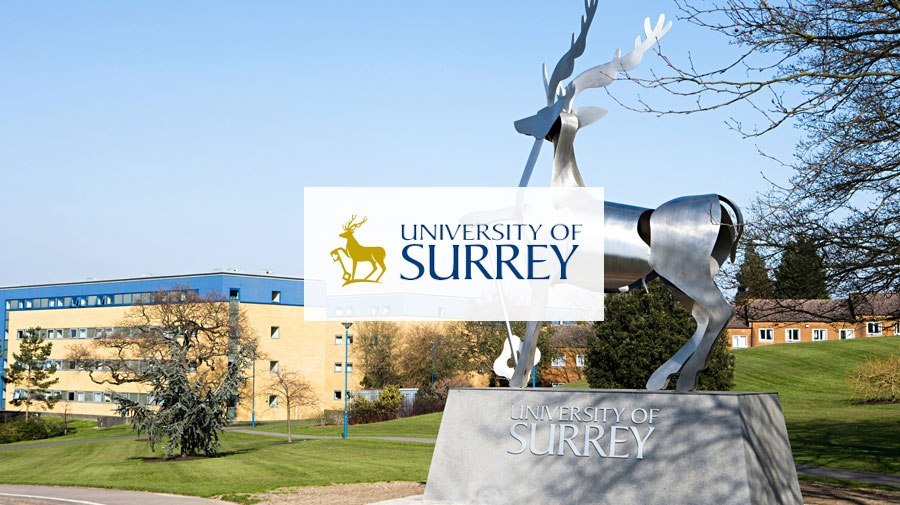Law PhD
Why choose this course
Our PhD in Law aims to train the next generation of legal thinkers, law reformers, policy advisors, political activists, and academics. Our emphasis in the School of Law on combining theory and practice makes us unique in the UK, and a world-class centre for deep and creative legal research.
Surrey’s specialisms in law offers you the opportunity to explore a diverse range of areas. We have particular research strengths in legal philosophy and legal theory, neuroscience and law, criminal law, Chinese law, international economic law, Roman legal history, environmental law, health sciences and law, artificial intelligence and law, human rights law, and public international law. Our unique concentration of expertise in legal philosophy and legal theory is largely unparalleled worldwide.
Our academic staff are internationally recognised for their research and are experienced legal practitioners, providing consultancy to law firms, governments, non-governmental organisations and businesses around the world. As a School of Law doctoral student, you’ll be part of this thriving community of researchers engaged in a wide range of projects, and – depending on your area of study – will be able to join a subject or research group as well as participating alongside academic staff in the activities of the School of Law.
The School also enjoys excellent links with local, national and international legal communities. You’ll benefit from stimulating roundtables seminars, workshops and lectures delivered by distinguished academics, eminent judges and law practitioners.
What you will study
Through a variety of approaches, from doctrinal to socio-legal, contemporary to historical, single jurisdiction to comparative, we will help you challenge ideas, hone your skills and develop the hallmarks of a leading researcher. You will work on a structured, supervised programme of research in one of the areas of law in which we have expertise.
You’ll be able to develop your teaching skills, as well as the ability to think theoretically and provide innovative practical solutions to legal problems. We encourage our postgraduate research students to present work and discuss ideas in both formal and informal settings. We can also support you intellectually and financially to present and exchange ideas and discuss your research in an international setting.
At the end of your time as a PhD researcher at Surrey you’ll be expected to submit an extended thesis for examination. This thesis will demonstrate your ability to pursue scholarly research which makes an original contribution to knowledge. You will also be expected to answer questions on your thesis and your research in a viva voce examination.
Research support
The professional development of postgraduate researchers is supported by the Doctoral College, which provides training in essential skills through its Researcher Development Programme of workshops, mentoring and coaching. A dedicated postgraduate Careers and Employability team will help you prepare for a successful career after the completion of your Ph.D.
Research themes
- Artificial intelligence and law
- Chinese comparative law
- Criminal law and neuroscience
- European Union law
- European Union law and healthcare law
- Health sciences and law
- Human rights law
- International economic law
- Kantian legal philosophy and other intellectual historical approaches to legal problems, such as terrorism, human rights and refugee law
- Language and law
- Mental health law and neuroscience
- Methodology of intellectual legal history
- Philosophy of constitutional law
- Philosophy of contract law
- Philosophy of criminal law
- Philosophy of humanitarian law
- Philosophy of neuroscience and law
- Philosophy of tort law
- Philosophy of WTO
- Public international law
- Roman legal history and private law
- Rule of law and transnational law
- Rule of law in China
- Socio-legal approaches to mental health and law, sex crimes, sentencing
- Technology and law
- Terrorism and law
- The logic of war
- The nature of law
- The normativity of law
- The philosophy of law and economics
- Topics in international public law, such as state succession.
Intakes
- Jan
Application Processing Time in Days: 20
Minimum English Language Requirements
| English Level Description | IELTS (1.0 -9.0) | TOEFL IBT (0-120) | TOEFL CBT (0-300) | PTE (10-90) | |
|---|---|---|---|---|---|
| Expert | 9 | 120 | 297-300 | 86-90 | |
| Very Good | 8.5 | 115-119 | 280-293 | 83-86 | |
| Very Good | 8 | 110-114 | 270-280 | 79-83 | |
| Good | 7.5 | 102-109 | 253-267 | 73-79 | |
| Good | 7 | 94-101 | 240-253 | 65-73 | |
| Competent | 6.5 | 79-93 | 213-233 | 58-65 | |
| Competent | 6 | 60-78 | 170-210 | 50-58 | |
| Modest | 5.5 | 46-59 | 133-210 | 43-50 | |
| Modest | 5 | 35-45 | 107-133 | 36-43 | |
| Limited | 4 | 32-34 | 97-103 | 30-36 | |
| Extremely Limited | < 4 | < 31 | < 93 | < 30 |
Admission Requirement / Eligibility Criteria
Applicants are expected to hold at least a 2:1 Bachelors degree along with a Masters degree at a minimum of a merit level in Law, or other relevant discipline, from an approved university.
If you are unable to offer these qualifications, you may still be considered for admission if you hold a first-class Bachelors degree in Law, or other relevant discipline, from an approved university, or a professional or other qualification deemed to be appropriate and equivalent.
- Course Type: Part Time
- Course Level: Doctoral Degree/PhD
- Duration: 08 Year
-
Total Tuition Fee:
65600 GBP
Annual Cost of Living: 9207 GBP
Application Fee: N/A

